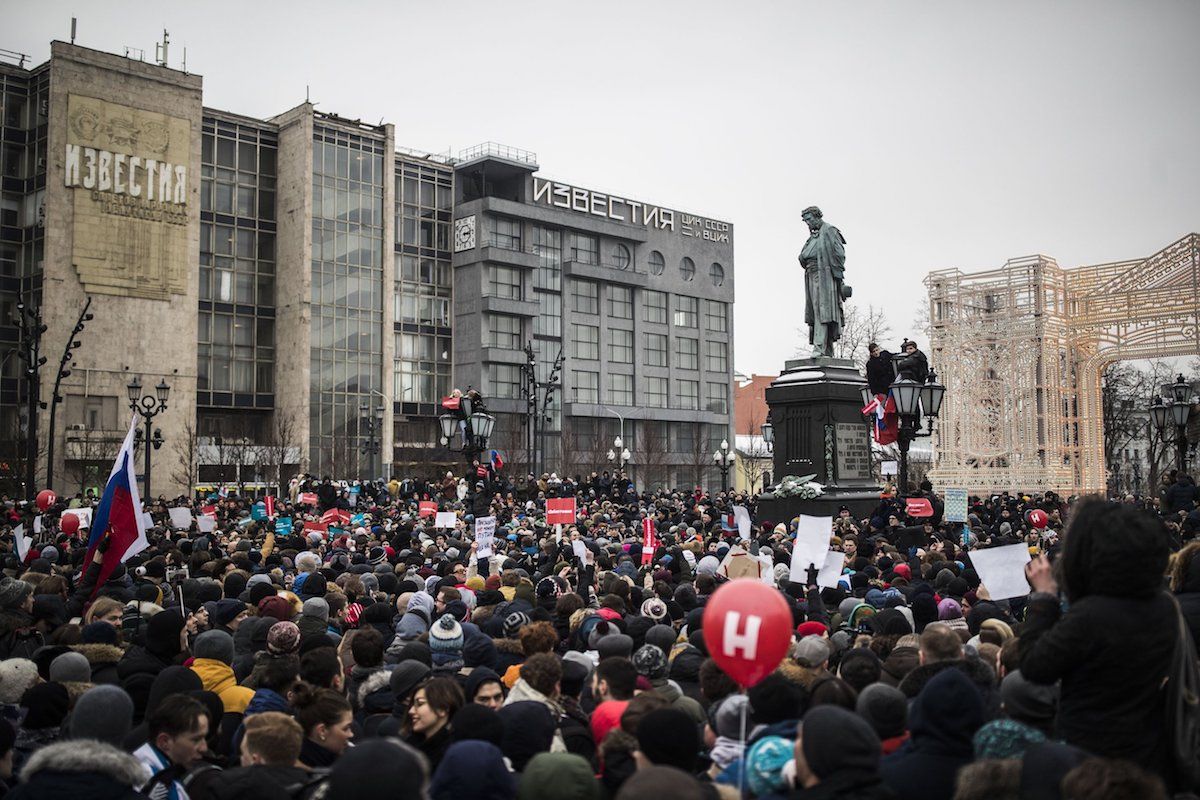Russian Authorities Are Trying Really Hard to Boost Turnout in the Upcoming Election, Good Taste Be Damned
This year's electoral campaign is set to be the strangest in Russia’s recent history, all about convincing those Russians who aren't fans of President Vladimir Putin or who just aren't motivated voters to show up at the polls and cast their ballot, no matter the candidate, because doing so would lend legitimacy to what's considered a foregone conclusion: Putin's reelection.
Russian authorities’ concern over turnout has reached almost feverish obsession with anonymous, homophobic propaganda videos and men’s magazines using sexualized imagery to complete their “civic responsibility” to websites like Russian airline Aeroflot urging their visitors to vote.
Putin is expected to win by such a colossal margin (as he’s already done three times since 2000) in the March 18 election that he not only barely, if at all, campaigns, but can’t even be bothered to be filmed for his own campaign video, which had to be stitched together from archival footage. Or even appear in public in the last month before the election date, if only to quench the rumors of a terminal disease or a palace coup.
Putin failed to show up at his own nomination, never collected his candidate’s ID, refused to debate, all but disappeared from the TV screens. Am worried about the swearing in ceremony now.
For the remaining candidates, a single digit race would be an overstatement: Of eight names on the ballot, five look attractive enough to a grand total of 2 per cent of the Russian electorate, according to the latest polls. The two remaining contenders, who aren’t Vladimir Putin or political non-entities, will gladly accept 7 per cent as a major victory.
One, Vladimir Zhirinovsky, whose Liberal-Democratic Party of Russia isn’t remotely liberal or democratic (in conventional terms, LDPR can be described as a far-right populist party), is running for president for the sixth time since 1991. His best result was 9.35 per cent in 2008, and he can’t hope to break his personal record this time, according to the most generous polls.
The other, Pavel Grudinin, a Communist Party candidate who isn’t a member of the party, is under constant, ferocious attack from state-owned and loyalist media, commentators and countless online bots and trolls for his supposed hypocrisy. Grudinin, the CEO of a successful agricultural business, is famously wealthy, probably beyond what his officially declared income shows.
With the biggest intrigue of this electoral cycle in Russia being Grudinin or Zhirinovsky coming second with 7 per cent (or whether the ultra-liberal Ksenia Sobchak, the only woman on the ballot, can break the 1 per cent barrier), it’s no surprise that Russians are disinterested.
So the focus isn’t one of the persons on the ballot, but the turnout itself. Reports in the media, based on leaks from the Kremlin, name “70/70” as the target — as in 70 per cent votes for Putin at 70 per cent turnout.
Officials on the ground are so anxious to meet the unrealistic expectations forced on them that some are jumping the gun, like the Tula elections committee which published turnout figures three weeks before the election day
Hi! I am a robot. I just upvoted you! I found similar content that readers might be interested in:
https://www.scribd.com/article/372766861/Russian-Authorities-Are-Trying-Really-Hard-To-Boost-Turnout-In-The-Upcoming-Election-Good-Taste-Be-Damned